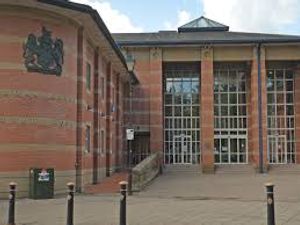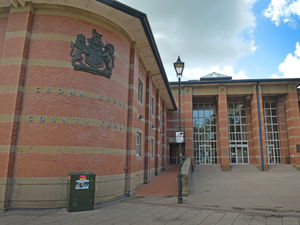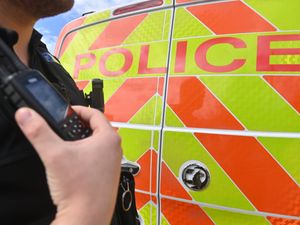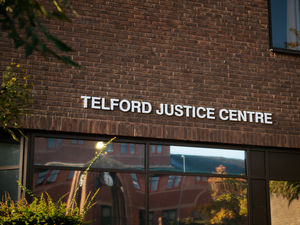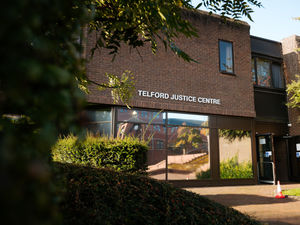Family wins bid to clear name of member of the Shrewsbury 24
The family of a member of the Shrewsbury 24 has won a bid to clear his name at the Court of Appeal.
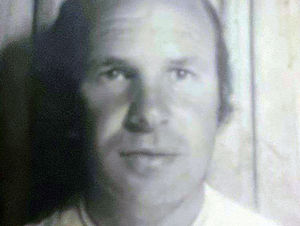
Thomas Brian Williams, who died aged 74, in 2013, was among two dozen trade unionists who picketed in Shrewsbury during the 1972 national builders' strike and were charged with offences including unlawful assembly, conspiracy to intimidate and affray.
In March last year, 14 of the group, including Royle Family actor Ricky Tomlinson, had their convictions quashed following a Court of Appeal challenge.
Their lawyers had argued that the destruction of original witness statements linked to their trials meant their convictions were unsafe.
The Criminal Cases Review Commission (CCRC), which investigates miscarriages of justice, referred Mr Williams' case to the court after it was approached by his daughter-in-law Samantha Williams.
She watched by videolink as senior judges overturned his convictions following a short hearing at the Royal Courts of Justice in London on Thursday.
The 1972 pickets were striking for better wages and health and safety, at a time when many workers were being injured or killed on building sites.
Twenty-two were convicted in three trials in 1973 and 1974 and six were jailed, while two were acquitted.
Piers Marquis, representing Mr Williams, who was known as Brian, told the court that after pleading not guilty he was convicted of affray and unlawful assembly at the second trial - which focused on a site in Telford - and was sentenced to six months in custody.
He said the appeal was brought on the grounds that "the destruction of witness statements and the failure to disclose the fact of that destruction rendered the proceedings unfair" and made the convictions unsafe.
In Thursday's ruling, Lord Justice Holroyde, sitting with Mr Justice Holgate and Mr Justice Sweeting, referred to the previous Court of Appeal judgment.
Lord Justice Fulford said in that ruling: "If the destruction of the handwritten statements had been revealed to the appellants at the time of the trial, this issue could have been comprehensively investigated with the witnesses when they gave evidence, and the judge would have been able to give appropriate directions.
"We have no doubt that if that had happened, the trial process would have ensured fairness to the accused. Self-evidently, that is not what occurred.
"By the standards of today, what occurred was unfair to the extent that the verdicts cannot be upheld."
The earlier appeal was told that a note discovered in the National Archives in 2013, from a 1973 consultation involving police and the original trial prosecutor, said "not all original handwritten statements were still in existence, some having been destroyed after a fresh statement had been obtained".
It continued: "In most cases the first statement was taken before photographs were available for witnesses and before the officers taking the statements knew what we were trying to prove."
Lord Justice Holroyde said the March 2021 judgment's conclusions were "determinative" on Mr Williams's case.
He said that "by modern standards the appellant did not and could not have a fair trial because of the non-disclosure", adding that "his convictions are accordingly unsafe".
Mr Williams was born in Beaumaris, Anglesey, North Wales, and lived most of his married life in St Asaph, Denbighshire, with wife June, who has also since died.
His daughter-in-law said in comments provided by the Public Interest Law Centre (PILC), which represented her at the Court of Appeal, that "this whole situation completely destroyed his wife, she was left in pieces", with it being "like an embarrassing family secret".
Ms Williams said: "As a family we believe that Brian's conviction was undoubtedly life changing and caused a lasting trauma. For us the process of having his conviction quashed has not only allowed us to right a wrong which was done all those years ago, but has also allowed us to further understand the shocking truth of just how wrong this was."
Paul Heron, senior solicitor at the PILC, said: "The innocence of Brian and the Shrewsbury 24 is now established, but that is not where the story ends. Many of the 24 were unable to find work after events of 1972-74 due to industry blacklisting.
"Alongside the Blacklist Support Group we are calling for a public inquiry into blacklisting in the construction industry, including the collusion of government."
Mr Tomlinson called for an inquiry into blacklisting in a statement provided by the PILC, adding: "It is great to hear that another one of my comrades has had his convictions quashed."

